I’ve read books in English, French, and Arabic. Both fiction and non-fiction.
Mostly, I’ll post here non-fiction English books. At least, the ones that I can recommend and might be relevant to most of you.
Also, I’ll skip the books that I read but don’t remember much of them. I spent a decade reading without taking notes. Please don’t do like me. It’s such a waste.
This section is only meant to spark your interest in books. So I’ll only write my impressions and three notes from the books. For more details, summaries and reviews, you can find them on Amazon or any other source.
For a faster research, you can click on any tag below to find the books of your interests.
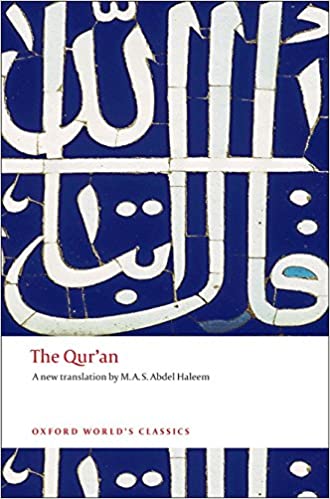
The Quran (Translation)
Oxford World's Classics
M.A.S. Abdel Haleem
Reading the Quran is like fishing, you never know what you’re going to catch. Among many, it can bring you relief, give you strength, cleanse your heart, nurture your soul, or expand your mind.
Three notes from the book:
1- Read! And your Lord is the Most Generous, Who taught by the pen— taught humanity what they knew not. [Surah Al’ Alaq-3,4,5]
2- And remember when your Lord proclaimed, ‘If you are grateful, I will certainly give you more. [Surah Ibrahim-7]
3- And whoever puts their trust in Allah, then He alone is sufficient for them. [Suarh At-Talaq-3]
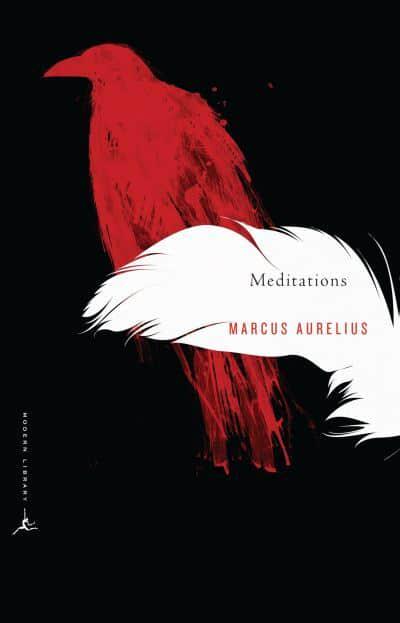
Meditations
A New Translation by Gregory Hays
Marcus Aurelius
Meditations by Marcus Aurelius is about converting knowledge to action. The Roman Emperor keeps reminding himself of the same few truths, and thus, strengthens his soul against the challenges of everyday life to respond in the best manner possible. To learn more, check my wisdom article "Meditations: The Wise Emperor and His Inner Fortress".
Three notes from the book:
1- You could be good today. But instead, you choose tomorrow.
2- It never ceases to amaze me: we all love ourselves more than other people, but care more about their opinion than our own.
3- External things are not the problem. It’s your assessment of them.
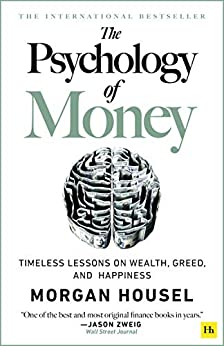
The Psychology of Money
Timeless lessons on wealth, greed, and happiness
Morgan Housel
The way we manage money doesn't depend only on our technical skills, but on our personal history, emotions and behaviors. Learning about these things can give you a better understanding of your behavior with money. And who knows, it might save you from future troubles too. Through simple writing and short stories, Morgan Housel makes sure that every we'll get the lesson.
Three notes from the book:
1- The more extreme the outcome, the less likely you can apply its lessons to your own life.
2- There is no reason to risk what you have and need for what you don't have and don't need.
3- "Enough" is realizing that the opposite—an insatiable appetite for more--will push you to the point of regret.
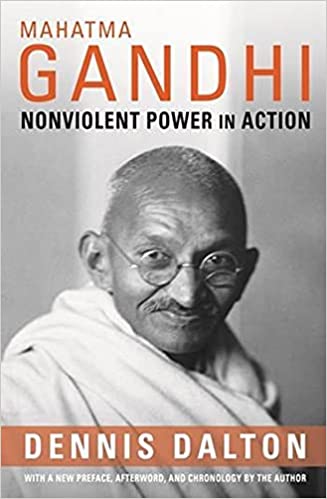
Mahatma Gandhi
Nonviolent Power in Action
Dennis Dalton
The book tackles Gandhi’s life from different perspectives making it a balanced analysis. It goes over Gandhi’s story before he became the Mahatma, how he evolved as a person, the origins of his unshakeable belief in nonviolence, inclusive leadership, the critiques of his contemporaries, the strengths and weaknesses of his method, his views on the Holocaust, and much more. Find out more in my 'Book Notes'.
Three notes from the book:
1- “The outward freedom therefore that we shall attain will only be in exact proportion to the inward freedom to which we may have grown at a given moment.”
2- “The belief that there is no connection between the means and the end is a great mistake. Through that mistake, even men who have been considered religious have committed grievous crimes. …there is just the same inviolable connection between the means and the end as there is between the seed and the tree. …We reap exactly as we sow.”
3- “Religion in the highest sense of the term. It includes Hinduism, Islam, Christianity, etc., but is superior to them all. You may recognize it by the name of Truth, not the honesty of experience, but the living Truth that pervades everything and will survive all destruction and all transformation.”
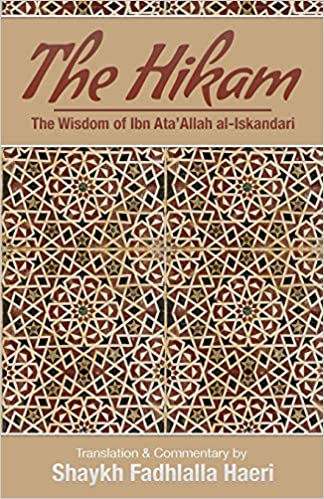
The Hikam
The Wisdom of Ibn Ata’ Allah al-Iskandari
Shaykh Fadhlalla Haeri
I loved The Hikam so much that I read it twice in a row. It will definitely gain a long-term place on my nightstand. It's a collection of 264 aphorisms from a great Sufi master. Too much wisdom packed in a short book!
Al-Iskandari's hikam are timeless, eye-opening, and thought-provoking. You'll find some of my favorite hikam, thoughts, impressions, and commentaries on my top 3 in "Book Notes".
Three notes from the book:
1- If you want to receive gifts, then perfect your spiritual poverty and desperate need: “Alms are only for the poor.” [9:60]
2- Reflection is the lantern of the heart, so when it leaves the heart has no light.
3- Looking out for the faults hidden within you is better than looking out for the invisible realities veiled from you.
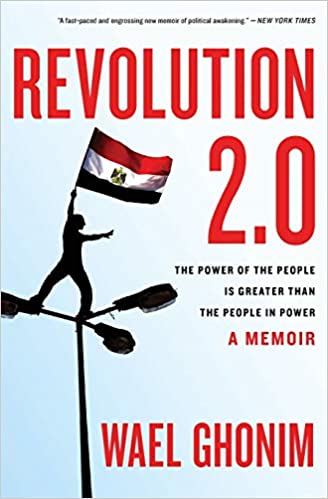
Revolution 2.0
The Power of the People Is Greater Than the People in Power: A Memoir
Wael Ghonim
I had no idea who Wael Ghonim was until I was researching for my article "(Almost) Everything You Need to Know About Media". I came across the work of Martin Gurri—author of The Revolt of the Public—who praised the book so much that I decided to buy it. I wasn't disappointed. Wael is definitely not an ordinary person. He moved from creating a Facebook page called "We Are All Khaled Said" to becoming one of the organizers of the Egyptian revolution. Moving people from the virtual to the real world and breaking the fear barrier was a great feat. And this book tells the story.
Three notes from the book:
1- The more you can get everyone involved in trying to solve your problems, the more successful you will be. I found it natural, a few years later, to apply this philosophy to political and social activism.
2- The strategy for the Facebook page ultimately was to mobilize public support for the cause. This wasn't going to be different from the "sales funnel" approach I learned at school. The first phase was to convince people to join the page and read its posts. The second was to convince them to start interacting with the content by "liking" and "commenting" on it. The third was to get them to participate in the page's online campaigns and to contribute to its content themselves. The fourth and final phase would occur when people decided to take activism to the street. This was my ultimate aspiration.
3- The rapid pace of events drove home one of the key strategies I learned from the revolution: to achieve your vision, you need friends and communication channels more than you need plans. The world moves too fast for even the best-laid plans to hold up.
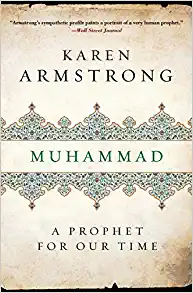
Muhammad
A Prophet for Our Time
Karen Armstrong
It is one thing that, we Muslims, are praising the Prophet Muhammad (pbuh). It is another thing that an "outsider" to Islam praises him. Karen Armstrong is a renowned commentator on religious history. Even if she has some distance from what we consider the miracles of the life of the Prophet, she painted a fascinating and fair portrait of Muhammad (pbuh). This book is particularly important when we know that Western critics persist in viewing the Prophet of Islam as a monster!
Three notes from the book:
1- The Quranic institution of polygamy was a piece of social legislation. It was designed not to gratify the male sexual appetite, but to correct the injustices done to widows, orphans, and other female dependants, who were especially vulnerable.
2- Some of the Jews were also becoming hostile to the newcomers. Muhammad did not expect them to convert to Islam, and their quarrel with him was not primarily religious but political and economic. The Jews' position in the oasis had deteriorated, and if Muhammad succeeded in uniting Aws and Khazraj, they would have no chance of regaining their former supremacy.
3- The primary meaning of that word [jihad], which we hear so often today, is not "holy war" but the "effort" or "struggle" necessary to put the will of God into practice. Muslims are exhorted to strive in this endeavor on all fronts: intellectual, social, economic, spiritual, and domestic. Sometimes they would have to fight, but this was not their chief duty.
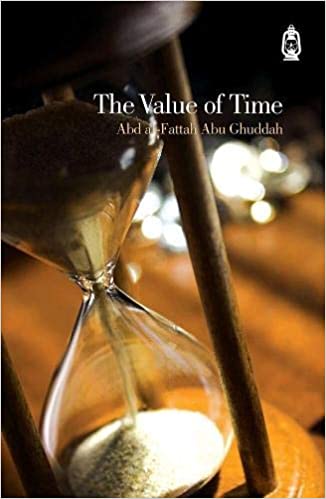
The Value of Time
A collection of amazing sayings, anecdotes and wonderful stories of the scholars of the Muslim Ummah
Shaykh Abd al-Fattah Abu Ghuddah
Learning about the accomplishments of great Muslim scholars is inspiring. They could marry a rich spiritual life, hunger for knowledge, and action that benefit themselves and others beyond measure. This is everything a Muslim would want to aspire to. I wrote an article about this book that you can find in Articles-->Book Notes-->The Value of Time. This book is magical as it gives an immediate boost to ambition and determination.
Three notes from the book:
1- The Prophet (ﷺ) said: “There are two blessings that many people waste: health and free time.” [Bukhari]
2- Imam al-Shafii said: “Keep your soul occupied with good, otherwise it will keep you occupied with evil.”
3- Imam al-Halabi wrote in the biography of al-Suyuti in Bughyat al-Wuat:
To do a thing today, and the same tomorrow.
Gathering is the essence of knowledge.
Thus one may achieve wisdom.
For streams are but the gathering of drops.
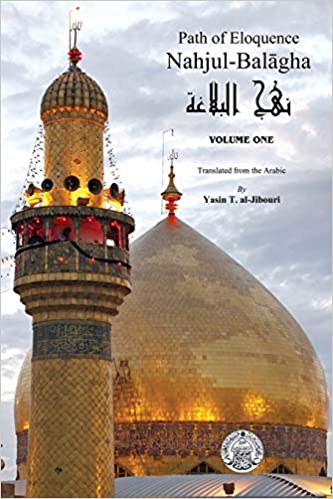
Nahjul-Balagha
Path of Eloquence
Yasin al-Jibouri
This book is a compilation of the sermons of Ali ibn Au Talib, cousin and son-in-law of the Prophet Muhammad (PBUH). It has the Arabic text with English translation. It's perfect as my Arabic is not good enough to understand Imam Ali. He's at another level of eloquence and depth. The topics are various. My favorite sermons are the ones speaking about Allah and our relationship with Him.
Three notes from the book:
1- Lord! Suffices me for honor to be Your servant, and suffices me for pride that You are my Lord; You are as I love You to be, so do make me as You love I should be.
2- Beware! At the time of committing evil deeds, remember the destroyer of joys, the spoiler of pleasures, and the killer of desires (namely death). Seek assistance of Allah for fulfillment of His obligatory rights and for (thanking Him) for His countless bounties and benevolence.
3- Eyes do not see Him face-to-face, but hearts perceive Him through the realities of belief. He is near to things but not (physically) contiguous. He is far from them but not (physically) separate. He speaks but not with reflection. He intends but not with preparation. He molds, but not with (the assistance) of limbs...
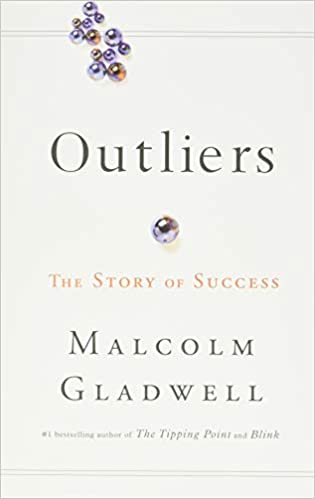
Outliers
The Story of Success
Malcolm Gladwell
I read The Tipping Point after reading Outliers. From a writing perspective, Outliers is far better. It is fluid with a dose of suspense. You don't see from the beginning how the different chapters are connected to the main idea, which keeps you captivated. For the rest, based on the story of many successful people, Gladwell shows what it takes to be successful. Also, you'll understand why some ingredients of success are not replicable.
Three notes from the book:
1- Achievement is talent plus preparation. The problem with this view is that the closer psychologists look at the careers of the gifted, the smaller the role innate talent seems to play and the bigger the role preparation seems to play.
2- Those three things - autonomy, complexity, and a connection between effort and reward - are, most people will agree, the three qualities that work has to have if it is to be satisfying.
3- It is those who are successful, in other words, who are most likely to be given the kinds of special opportunities that lead to further success. It’s the rich who get the biggest tax breaks. It’s the best students who get the best teaching and most attention. And it’s the biggest nine- and ten-year-olds who get the most coaching and practice. Success is the result of what sociologists like to call “accumulative advantage.
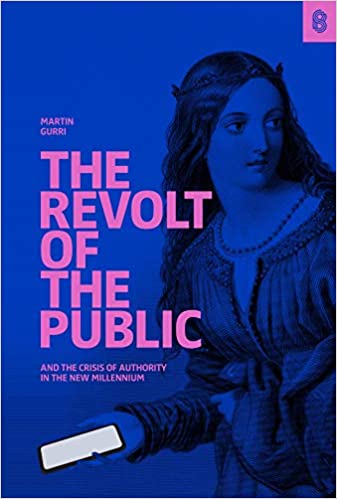
The Revolt of The Public
and the Crisis of Authority in the New Millennium
Martin Gurri
This is an essential book to understand major events of the last two decades. Events like the Arab Spring, the election of Trump, and Brexit are all connected. Similar events are happening all around the world. They describe a new reality. The access of the public to information changed the relationship to power. You can have a glimpse of the book from my article "(Almost) Everything You Need to Know About Media".
Three notes from the book:
1- The docile mass audience, so easily persuaded by advertisers and politicians, had been a monopolist's fantasy which disintegrated at first contact with alternatives.
2- Information had effects. And the first effect I perceived related to the sources: as the amount of information available to the public increased, the authoritativeness of any source decreased.
3- The [dictator] dilemma works this way. For security reasons, dictators must control and restrict communications to a minimum. To make their rule legitimate, however, they need prosperity, which can only be attained by the open exchange of information. Choose.











